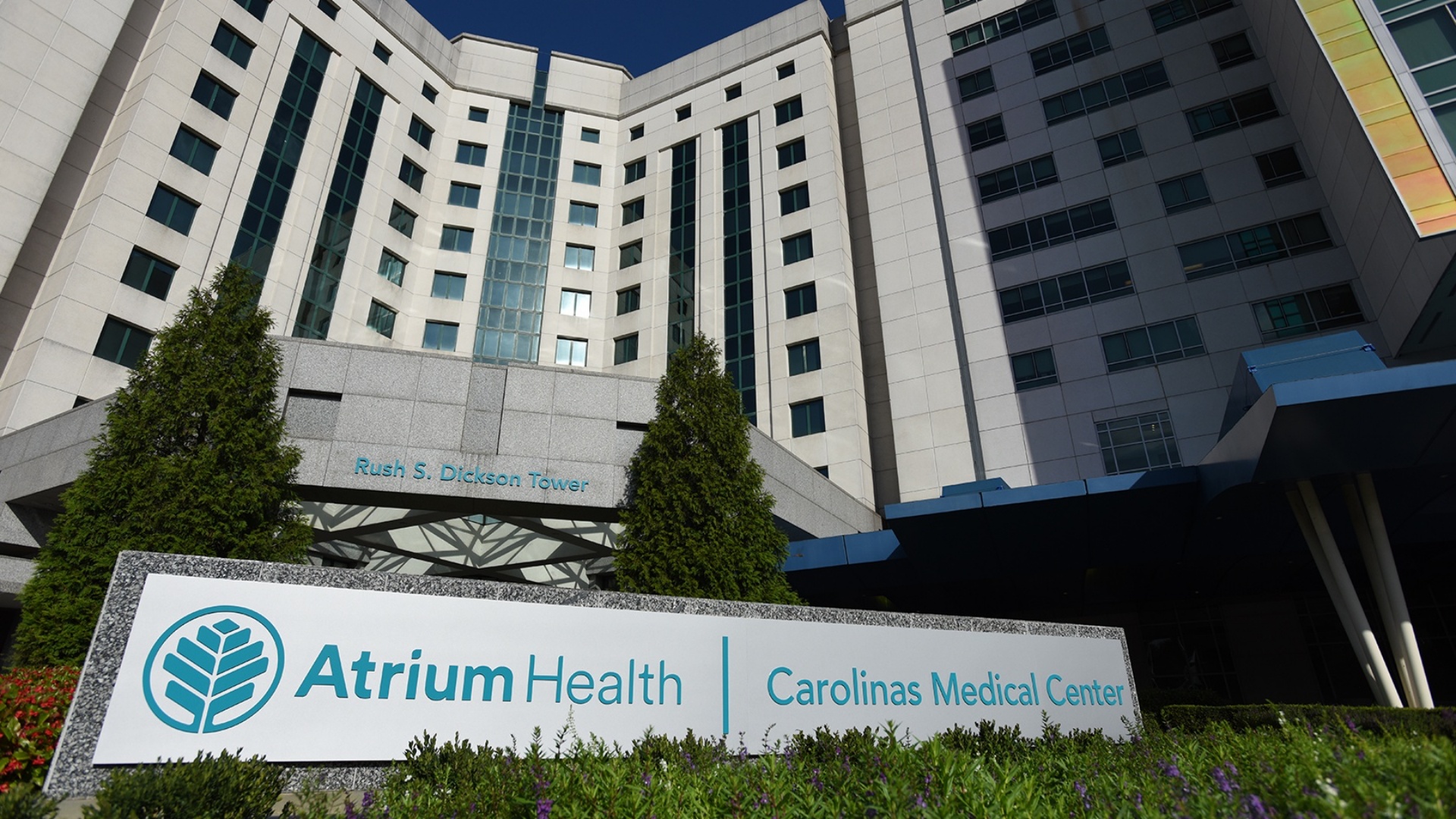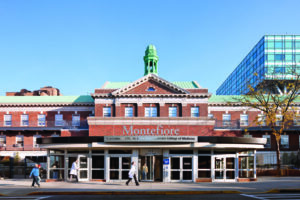Atrium Health is one of North Carolina’s largest health care organizations. The Charlotte-based hospital network employs over 70,000 people across 1,400 care locations. In 2020, as Atrium Health’s revenues exceeded $11.3 billion, the organization’s tax bill stayed the same — zero.
Like many of America’s health care networks, Atrium Health is registered as a non-profit. That means that in exchange for not paying taxes, the organization must provide free care for those in need. In 2019-20, Atrium Health received $440 million in tax exemptions from North Carolina. It spent only $260 million on charity care.
Atrium Health isn’t alone. Management at most of the state’s non-profit health systems failed to provide adequate charity care, according to a study by the North Carolina Treasurer’s Office and Johns Hopkins University. For most, charity care doesn’t exceed 60 percent of what the groups get in yearly tax breaks.
America’s Non-profit Health Care System Is a Relic of a Previous Era
- In earlier times, most health care systems were religious and provided care for patients who couldn’t afford services. In exchange for caring for the poor, the government agreed to exempt the organizations from taxes.
- As medical services evolved from alchemy to science, the federal government allowed major health systems to keep their non-profit status—in exchange for offering charity care.
Lack of charity care was just the tip of the iceberg. The investigation of non-profit hospitals was part of a larger initiative by North Carolina State Treasurer Dale Folwell, a Republican elected to statewide office in 2017. Early in his tenure, Folwell and his team determined that the state’s health care spending was unsustainable. As treasurer, Folwell was one of the few people in the Tar Heel state who could hope to actually do something about it.
In addition to acting as the state’s financial manager, his responsibilities include negotiating the state’s health care plan, which covers over 700,000 cops, teachers, and other state workers. “I inherited a $3.2 billion unfunded health care liability,” he told More Perfect Union in a phone interview. To offset the rising cost, Folwell, who describes himself as a conservative, pushed to reform how the state paid for health care.
Folwell Looked To Reign in Medical Spending by Tying Payments to Medicare
- Folwell pushed to tie the state’s health payments to the federal Medicare rate. If Medicare paid health care providers $100 for stitches, he proposed that the state of North Carolina would pay roughly $200. The amount would allow providers to earn a profit while significantly reducing the state’s bill.
- Health care providers weren’t interested in negotiation. At the time, individual major providers had secret agreements with the state that allowed them to charge over $400 for the same services. “We were given the proverbial middle finger,” an aide to Folwell said during a phone interview.
- It turns out that state hospitals make substantial profits even from Medicare’s low reimbursement rates. Industry lobbyists claimed that North Carolina hospitals lost over $3 billion dollars on Medicare in 2020, but a new Rice University study found that the state’s non-profit systems made $87 million in Medicare profits that year.
The initiative was largely a failure. Only three of the state’s 108 hospitals signed on to the agreement. But Folwell wasn’t done. The investigations convinced him that the state’s health care systems weren’t operating like traditional businesses. “We’re talking about cartel-like activities,” he said. A handful of wealthy health care providers determine how much health care the state gets, who can access it, and its quality. That power allows executives to play dirty. “If you don’t pay for their product,” he said, “they will break your kneecaps and weaponize your credit score.” With that, Folwell threw his weight behind medical debt reform.
A lack of charity care can be directly linked to medical debt. If a patient qualifies for charity care, they probably can’t afford to pay for the service out of pocket. The current system pushes debt onto individuals, while forcing local governments, which often fund emergency medical services, to fill in the gaps. Folwell would know; he’s the chair of the state’s local government commission. “A lot of health care in rural North Carolina has turned into glorified emergency rooms,” Folwell told a public hearing in September. EMS services aren’t particularly profitable, but they’re often the difference between life or death. In fact, most lose money every month. “That normally becomes an unfunded mandate on local counties.”
His office found that each year citizens were saddled with $150 million in medical bills that should have been considered charity care by the state’s hospital’s own policies. The hospitals then encouraged patients to open up “medical credit cards,” which feature interest rates over 18 percent. Patients were cheated out of the care they deserved and then stuck with the bill.
The situation isn’t unique to North Carolina. Recently the New York Times published an expose on Providence Health & Services. The Washington-based non-profit health care organization runs 51 hospitals across the American West. The Times found that the management boosted revenue by charging poor patients for services that should have qualified for charity care. Aided by McKinsey & Company, Providence Health & Services wrongly billed patients for $73 million worth of charitable medical services in Washington state alone.
When residents in North Carolina and Washington couldn’t pay, the debt was sent to collections.
Medical Collections Can Destroy a Person’s Financial Well-Being
- A bill in collections damages a person’s credit score, which impacts everything from their cell phone bill to their mortgage rate.
- One Providence Health victim qualified for charity care but was charged $125,000 after she was rushed to the hospital with pregnancy complications. The resulting debt, which was 4 times her annual income, drove her credit score from a reasonable 650 to 400. Now, she can no longer afford to buy a house. The minimum credit score required for a mortgage is around 600.
- Earlier this year the Biden Administration announced three major changes around medical debt’s impact on credit scores.
- Despite the changes, medical debt collectors are still targeting heavily indebted people.
One result of Folwell’s work is House Bill 1039, a bipartisan bill that would revamp North Carolina’s medical debt laws. “Anybody who tries to make this a Democrat or Republican or unaffiliated issue is lazy,” Folwell said. “This is a moral issue.”
House Bill 1039 Expands North Carolina’s Ability to Protect Patients from the Ruinous Impacts of Medical Debt
- Require charity care or sliding scale prices for low-income patients.
- Cap out-of-pocket expenses at $2,300 and medical debt interest rates at five percent for households with incomes below 400% of the Federal Poverty Level.
- Require medical debt payment plans and ensure a monthly payment is below five percent of a person’s income.
- Ban home foreclosures because of medical debt.
- Create a new category of debt. Previously, medical debt was considered the same type of debt as an unpaid clothing bill.
The bill stalled in committee last session with opposition from both Democrats and Republicans. Rep. John Szoka, a Republican, disagreed with the mountain of evidence that medical debt harms consumers. “If you have something show up on your credit score that you disagree with, you can dispute it,” he said. Democratic Rep. Carla Cunningham, vice chair of the House Health Committee, is against the bill as well. “I don’t know who this would be beneficial to,” she told reporters. “If these are people that don’t have insurance at all and just are poor, basically making the least salary, I don’t see how it’ll be that beneficial to them.” During the 2020 election cycle, Cunningham received $2,500 from Atrium Health.
Last month, Treasurer Folwell held another public hearing to generate support for the bill. “Right now, people are dealing with the highest inflation in 40 years,” he told supporters. “In this economic environment, people should not be scared to seek medical attention because of things that may be associated with medical billing.”



